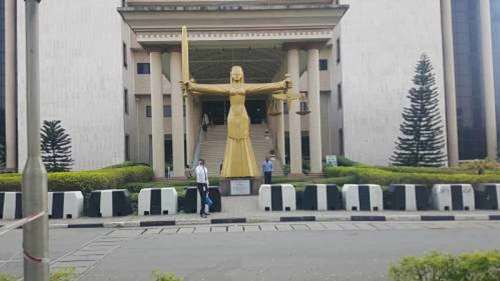The Association of Local Governments of Nigeria (ALGON) is engaged in a legal battle against the federal and state governments over the implementation of a Supreme Court ruling mandating financial autonomy for local governments. This legal tussle, filed at the Federal High Court in Abuja, highlights the ongoing struggle for fiscal independence at the local government level in Nigeria. The case centers on the allegation that both federal and state governments have deliberately stalled the implementation of the Supreme Court’s judgment, which was delivered nine months prior to the filing of the suit. ALGON contends that this inaction undermines the spirit of the judiciary’s highest authority and impedes the progress and development of local governance across the nation. The initial hearing, scheduled for May 2025, was adjourned due to the presiding judge’s absence, underscoring the procedural hurdles often encountered in legal battles. The rescheduling to a later date further prolongs ALGON’s quest for financial autonomy and reinforces the complex dynamics between the different tiers of government in Nigeria.
The core of ALGON’s argument revolves around the Supreme Court’s July 2024 ruling, which affirmed the financial autonomy of local governments. ALGON asserts that despite this clear legal directive, the state governments, in conjunction with certain federal authorities, have continually bypassed the prescribed procedures for the disbursement of funds allocated to local governments. This alleged circumvention, according to ALGON, not only violates the Supreme Court ruling but also hampers the ability of local governments to effectively deliver essential services to their constituents. The association maintains that the financial stranglehold imposed by higher tiers of government severely restricts their capacity to address critical local needs, thus stifling grassroots development and hindering overall national progress. ALGON’s suit seeks to rectify this perceived injustice and ensure the full implementation of the Supreme Court’s judgment.
ALGON’s lawsuit specifically targets the Attorney-General of the Federation, the Federal Republic of Nigeria, and 23 other defendants, including key financial institutions and government officials. The defendants include the Minister of Finance, the Central Bank of Nigeria (CBN), state Commissioners for Finance, the Minister of Budget and National Planning, the Accountant-General of the Federation, the Revenue Mobilisation, Allocation and Fiscal Commission (RMAFC), the Nigerian National Petroleum Company Limited (NNPCL), several commercial banks, and an individual named Bello Lawal. The wide range of defendants reflects the multifaceted nature of the financial management system for local governments and highlights the multiple levels at which ALGON alleges interference and non-compliance with the Supreme Court’s ruling.
ALGON is seeking several key declarations and orders from the Federal High Court. Firstly, it seeks an order granting all 774 local government councils direct representation at the Federation Account Allocation Committee (FAAC) meetings, where decisions regarding the distribution of national revenue are made. This request underscores ALGON’s desire for greater participation and influence in the allocation of resources that directly impact local governance. Secondly, ALGON seeks a declaration that funds meant for local governments cannot be disbursed through any channels other than those approved by ALGON, in line with the Supreme Court’s ruling. This demand aims to prevent the alleged diversion of funds and ensure that allocated resources reach the intended recipients. Through these requests, ALGON hopes to establish a more transparent and accountable system of financial management for local governments in Nigeria.
The defendants in the case, including the CBN and FAAC, have raised preliminary objections challenging ALGON’s legal standing (locus standi) to bring the suit. The CBN argues that ALGON lacks the legal personality to initiate the case, emphasizing that it was not a party to the original Supreme Court case that established the financial autonomy of local governments. FAAC echoes this argument, contending that ALGON’s representation at FAAC meetings is not stipulated within the Allocation of Revenue (Federation Account, etc.) Act of 1982. Similarly, lawyers representing state Finance Commissioners have aligned their arguments with FAAC, asserting that the current statutory framework does not accommodate representation from the 774 local government councils. These preliminary objections present a significant legal hurdle for ALGON, potentially impacting the progress and outcome of the case.
In response to these objections, ALGON has filed a counter-affidavit asserting its legal status as a duly registered association incorporated in 2002 with the express mandate to advocate for and protect the autonomy of local governments in Nigeria. This counter-affidavit aims to establish ALGON’s legal standing to initiate the lawsuit and challenge the assertions made by the defendants. The legal arguments presented by both sides underscore the complexities of intergovernmental relations in Nigeria and the ongoing debate over the appropriate level of autonomy for local governments within the broader federal system. The outcome of this case holds significant implications for the future of local governance in Nigeria and will likely influence the financial dynamics between the different tiers of government.














